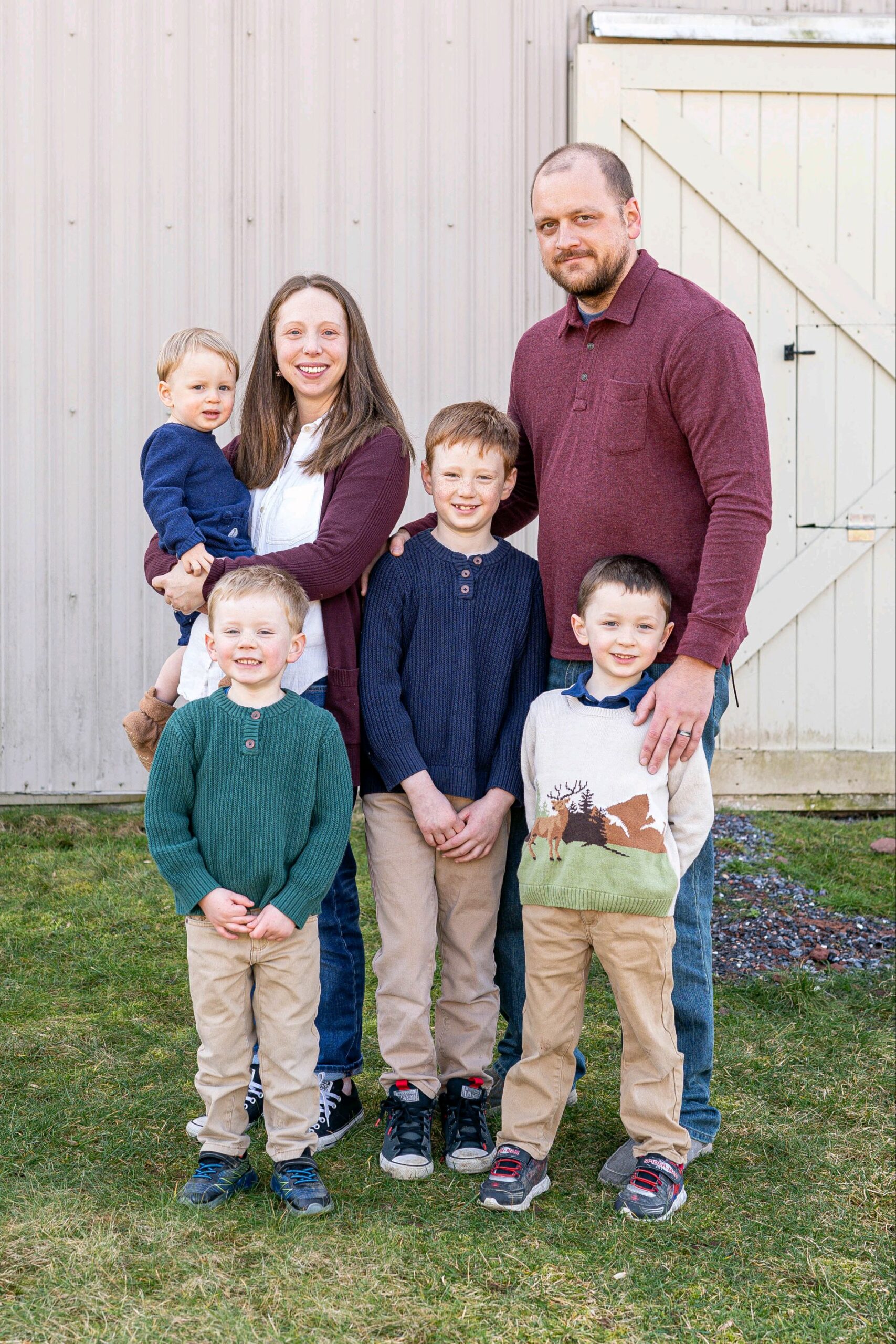Renee Plumberg
June 26, 2024

It’s 6:00 at my home. I am trying to make dinner while my seven-year-old is supposed to put away the clean dishes. My three and four-year-olds are playing with their cars on the dining room floor where I can see them, and my toddler is reading a book beside me. All is fine until I hear crying from the three-year-old. The four-year-old angrily hit him because his brother took his car without asking. I turn around, and my fun-loving seven-year-old has my clean saucepan on his head as he’s pretending to be Johnny Appleseed instead of quickly finishing his task. Please tell me I am not the only one with times like these.
I have taught them to ask before taking things. I have taught them why we don’t hit and must work diligently to finish tasks promptly. Sometimes, I’m swatting at behaviors like flies and wondering how to get to the root. What has helped us is acknowledging that our kids often know what to do and why to do it, but we weren’t focusing on strengthening their self-control to choose to do what they ought to. The Mom’s Note titled “Kids Get Self-Control!” has been extremely helpful.
What we learned from this Mom’s Note gave us the confidence to fully and consistently work on training the character trait of self-control with our kids starting from a young age. That includes the almost 17-month-old and older. Full disclosure: I am about to share what we have found helpful and are currently working on and practicing. I am not someone who has mastered it because this will be something we will need to consistently work on through each stage of our children’s development. Beginning young gives us building blocks to build upon as they grow older.
Joey and Carla Link discuss 3 “Governing Principles to Teach Self-Control” in the Mom’s Notes, “Kids, Get Self-Control!”
1. Learn Right From Wrong. As I stated before, we felt like we had given our younger children the information about what and why they should be doing something. However, we needed to practice with them how to do it with appropriate feedback. It can be easy to tell them, but little kids need practice, praise, correction, and lots of repetition. We focus on working with our children when they aren’t in trouble so they will be prepared the next time an issue arises.
2. Teach Kids to Think Before They Act
This step is vital for our kids to take ownership of their thoughts and actions. It takes consistent and attentive training. We must be willing to slow down and spend intentional time on this.
We have begun to ask our boys questions such as, “What was your motive behind that choice?” “Would you choose that behavior if Mom or Dad were in the room with you?” “If Jesus was in the room beside you, what would you choose to do?” This Mom’s Notes on self-control highlights a key phrase: “Thinking wisely leads to acting wisely.” With enough practice and effort on the parent’s part to draw these answers out, these same questions will begin to be the internal dialogue for our children. We will teach our kids how to analyze situations and think wisely about their appropriate actions.
3. No Pain, No Gain. When they do not use self-control, we must give a consequence. Consequences will hold them accountable. They must be impactful for individual children and focus on correction, not punishment. We focus on growth, future change, and loving the child. I would love to say praise comes easily to me. However, I tend to focus on the consequence part. Since listening to this Mom’s Note, I have been encouraged to remember to praise my child when I see them using the self-control they have practiced. I have seen a massive improvement in their effort and the joy they show when they realize I noticed them working on it.
Training our children (and ourselves) in the character trait of self-control allows us to get to the root of some of the other choices we see them making and will prepare them for the future. This particular Mom’s Note presentation has given us concrete steps to work on this.
“Understand this, my dear brothers and sisters: You must all be quick to listen,
slow to speak, and slow to get angry.”
James 1:19
Renee and her husband have been married for 11 years. They have 4 young boys, ages 7 yrs. and under and are expecting their first girl. They live in Colorado Springs where she spends her time as a homemaker and homeschool mom.


Leave a Reply